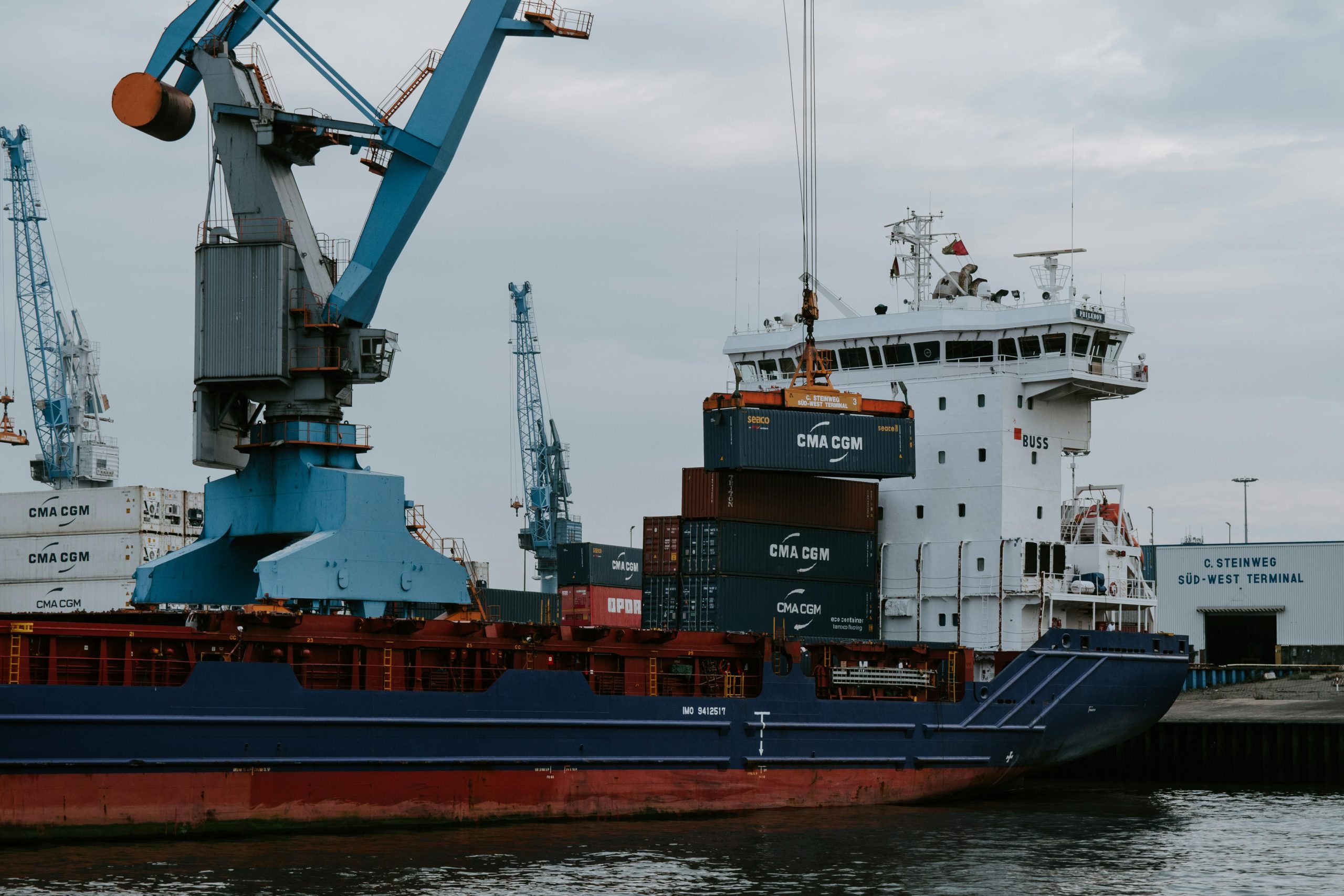The dawn of autonomous shipping is upon us. With significant strides in technology, the maritime industry is at the brink of a transformative era, one that will have profound implications for the United Kingdom’s shipping sector. What was once a distant dream is now an impending reality, thanks to powerful trends like machine learning, AI, IoT and Big Data. While the potential benefits are enormous, concerns about safety, regulatory compliance, and workforce displacement are equally significant. This article examines the impacts of autonomous shipping on the UK’s maritime industry.
The Promise of Autonomous Ships
Autonomous ships, or vessels, stand as a testament to the power of technology. These sophisticated sea conveyances are equipped with advanced systems that enable them to navigate across mass water bodies with minimal or zero human intervention. They represent a significant leap for the shipping sector, promising to redefine everything we know about the industry.
Lire également : Why Is A Level Maths So Popular Among College Students Right Now?
Autonomous vessels utilise a plethora of cutting-edge technologies. AI and machine learning enable them to learn from past experiences, adapt to changing circumstances, and make decisions in real time. IoT devices, on the other hand, ensure seamless communication between the ship and the control centre, while Big Data allows for the analysis of vast amounts of information in an instant.
The benefits associated with autonomous ships are potentially game-changing. For starters, they promise to significantly reduce the cost of shipping, primarily by eliminating the need for crew provisions and accommodations. These vessels are also expected to increase efficiency and reliability, thanks to their ability to operate round-the-clock without the need for breaks. Moreover, autonomous ships could potentially reduce accidents caused by human error, thereby enhancing safety in the maritime industry.
Dans le meme genre : Why the Legionella Log Book Matters for Workplace Safety Compliance?
Safety Implications
While the thought of autonomous ships cruising the seas may seem exciting, it also raises some serious safety concerns. After all, the sea is an unpredictable and often hostile environment, fraught with numerous challenges that even experienced mariners struggle to navigate.
Autonomous ships, with their heavy reliance on technology, are vulnerable to cyberattacks. A successful hack could lead to catastrophic outcomes, from the loss of valuable cargo to environmental disasters. Additionally, the ability of AI systems to respond effectively to real-world maritime situations, such as storms or encounters with other vessels, is unproven and remains a valid concern.
Despite these challenges, the International Maritime Organization (IMO) is working tirelessly to establish a regulatory framework for autonomous ships. The aim is to ensure that these vessels adhere to the same safety standards as manned ships, and to provide guidelines for their design, operation, and maintenance.
Implications for the Workforce
The advent of autonomous ships will undoubtedly have a profound impact on the workforce. In the short term, there may be job losses as roles traditionally performed by seafarers are automated. However, in the long term, new types of jobs are likely to emerge, particularly in the realms of AI, data analysis, remote control, and systems maintenance.
The shift towards autonomous shipping will call for a re-skilling of the workforce. Traditional maritime skills will still be valuable, but there will be a greater emphasis on technology-related competencies. The UK’s maritime industry, in collaboration with educational institutions, will need to develop training programs that equip workers with the necessary skills to thrive in the new era of autonomous shipping.
Regulatory Challenges
The regulatory landscape for autonomous ships is still uncharted territory. The IMO, the global standard-setting authority for the safety, security and environmental performance of international shipping, is in the process of developing a regulatory framework for autonomous vessels. However, this is a complex task that requires careful consideration of numerous factors including safety, liability, environmental impact, and cyber security.
The UK’s maritime industry will need to be actively involved in shaping these regulations, ensuring that they are conducive to the development and operation of autonomous ships within the country’s waters. This will require a balancing act – on one hand, the industry will want regulations that are not overly restrictive, allowing for innovation and growth. On the other hand, there is a need to ensure that these new vessels operate safely and responsibly, without posing a risk to other maritime traffic or the environment.
Economic Implications
While the potential economic benefits of autonomous ships are considerable, it’s also important to consider the potential costs. Investing in these vessels and the associated technology is likely to be expensive in the short term. Moreover, there will also be costs associated with training staff to operate and maintain the new systems.
However, the long-term economic prospects are bright. Autonomous vessels could significantly reduce operating costs, increase efficiency, and open up new business opportunities. For the UK’s maritime industry, this could mean a stronger global position, increased profitability, and a boost to the national economy.
As we stand on the cusp of a new era in maritime history, it’s clear that the journey towards autonomous shipping is both exciting and fraught with challenges. The UK’s maritime industry, recognised the world over for its prowess and resilience, is set to navigate these uncharted waters. With careful planning, collaboration, and a firm commitment to safety and sustainability, it will undoubtedly sail towards a prosperous future.
Environmental Impact of Autonomous Ships
The transition to autonomous ships offers promising environmental benefits for the UK’s maritime industry. Unlike traditional vessels, autonomous ships are expected to have a lower carbon footprint due to their efficient use of fuel. They utilise AI and machine learning to optimise their routes, reducing unnecessary travel time and fuel consumption. Furthermore, the remote-controlled nature of these vessels eliminates the need for crew amenities like heating and lighting, further saving energy.
However, it’s not all smooth sailing. While these ships may be more fuel-efficient, they also rely heavily on electrical systems. The sourcing and disposal of the batteries necessary for these systems can have adverse environmental consequences. The risk of oil spills or similar disasters also remains, whether from mechanical failures or cyberattacks.
Research through platforms like Google Scholar and Crossref reveal ongoing initiatives to address these environmental challenges, including the development of green versions of autonomous ships. A notable example is the Yara Birkeland, a fully electric and autonomous container ship, which is expected to reduce emissions by replacing 40,000 truck journeys annually.
Future Outlook
As with any powerful technological transition, the journey towards autonomous shipping comes with various challenges and uncertainties. The maritime industry will need to navigate around issues of safety, cybersecurity, workforce displacement, and regulations. However, the potential benefits of autonomous ships, such as cost savings, increased efficiency, and reduced carbon emissions, present a compelling case for their adoption.
The UK’s maritime industry has a unique opportunity to steer the global course towards autonomous shipping. Its rich maritime history and technical prowess can be leveraged to innovate and lead in this new era. As emphasised in various Google Scholar and Scholar Crossref sources, the industry will need to collaborate with government bodies, educational institutions, and technological partners to seize this opportunity.
Open access to emerging research and technological advancements will be critical in shaping the UK’s approach to autonomous shipping. Platforms like Preprints.org and PDF Accessed provide valuable insights and updates on the latest in autonomous shipping technology and regulations.
In conclusion, while the waters may be uncharted, the future of the UK’s maritime industry looks promising with the advent of autonomous shipping. It is an exciting time, filled with potential for growth, innovation, and sustainability. As we set sail into this new era, the focus should remain firmly on ensuring safety, sustainability, and prosperity for all involved in the maritime industry.



